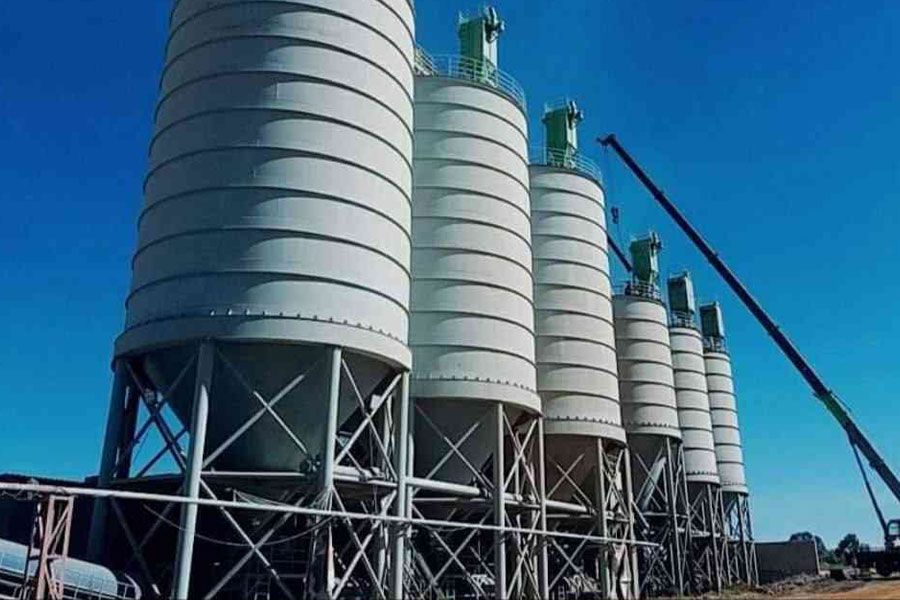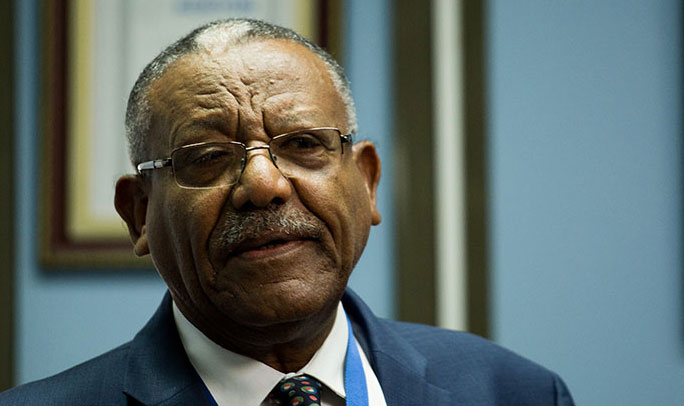
Seven of the 11 cement factories are determined to set up a new industry lobby group following disputes over a series of measures enacted by the federal government in recent months.
Cement retail prices have surged to around 2,000 Br a quintal as the stocks of retailers and wholesalers across the country are depleted following a directive last July, which sought to end the distribution of cement through agents.
Gebremeskel Chala, minister of Trade & Regional Integration, followed the directive up with a price cap. He instructed factories to sell a quintal of cement to designated distributors between 770 Br and 870 Br.
Two weeks ago, the Ministry adjusted the price cap, forcing cement factories to sell a quintal of cement for between 510 Br and 683 Br to distributors.
The measures have proved ineffective and have led to protests from supply chain actors and regional administrations.
The existing industry lobby group – the Cement Producers Association – filed a complaint with the Office of the Prime Minister a week ago, arguing against the price cap. Haile Assegide, general manager of Derba Cement, heads the Association.
The deteriorating market conditions have pushed seven cement factories to go ahead with plans to establish a new lobby group – the Cement Owners Association. Their ranks include Habesha, Kuyu and Ethio cement.
Industry executives have complained about the price caps to Trade Ministry officials through written correspondence and in face-to-face discussions.
Fitsum Demisse, CEO of National Cement, says the existing lobby group's perceived failure to address the issues have stoked the need for a new association.
Established by Italian nationals in 1936, National Cement operates a plant in Dire Dawa, around 500Km east of Addis Abeba.
Owned by Bizuayehu Tadelle, a businessman running East Africa Holdings, the plant can produce up to 3,000tn of cement a day. However, according to Fitsum, it is producing only three-quarters of its capacity.
The CEO attributes the decline in production to a scarcity of coal. His factory sources coal from small-scale miners in Kamashi Zone, Benishangul-Gumuz Regional State.
Although the Ethiopian Petroleum Supply Enterprise is tasked with importing and distributing coal, it has not procured the input from abroad in recent months due to a shortage of foreign currency.
“We've finished the process to establish the new association," he told Fortune. "We'll announce it in the coming week.”
Federal officials claim to be unaware of the developments.
"We're aware of the complaints but we don't have any information about the establishment of a new association," said Kumneger Ewnetu, communications director at the Ministry.
Yehualashet Tamiru, a legal expert, says there are no legal restrictions that prevent the factories from forming a second lobby group.
Industry players argue the price caps are exacerbating issues brought on by forex shortages.
Among them are the representatives of Habesha Cement S.C. Three months ago, Getu Gelete, a well-known figure in the business community, acquired a 60pc stake in the company. Habesha Cement was incorporated in September 2008 with 30 founding shareholders.
Hailemariam Desalegn, prime minister at the time, inaugurated the cement plant in the town of Holeta nearly 10 years later. It was erected with 3.2 billion Br in investment. The factory has the capacity to produce 1.4 million tonnes of cement a year, but has never come close to meeting its potential.
It is producing at 30pc due to a lack of raw materials and forex, according to Adugna Bekele, board chairperson.
"The price cap is unfair," he said. "We've asked all concerned bodies to make a revision."
Adugna disclosed Habesha Cement has requested the federal government to allocate 13 million dollars for the procurement of coal.
The state-owned Ethiopian Industrial Inputs Development Enterprise and the Ethiopian Trading & Business Corporation are among the entities authorised by the federal government to distribute cement received directly from factories. The Enterprise is mandated to supply 50,000tns of cement a month in Addis Abeba through six outlets.
"We've barely been supplied with cement from factories for a week," Solomon Girsha, deputy CEO, told Fortune.
The Corporation is tasked with distributing 1.3 million quintals monthly in the capital through four outlets.
"Factories have ceased supplying their products," said Ketsela Shewarega, deputy CEO of the Corporation.
He told Fortune the Corporation has reported the issue to the Addis Abeba Trade Bureau.
"We're awaiting their response," he said.
The Trade Ministry has repeatedly instructed factories to produce and distribute their products, according to Kumneger.
PUBLISHED ON
Oct 01,2022 [ VOL
23 , NO
1170]

Radar | Apr 17,2021

Fortune News | May 20,2023

Fortune News | Jun 29,2019

Radar | Jun 15,2019

Fortune News | Mar 16,2019

Dec 22 , 2024 . By TIZITA SHEWAFERAW
Charged with transforming colossal state-owned enterprises into modern and competitiv...

Aug 18 , 2024 . By AKSAH ITALO
Although predictable Yonas Zerihun's job in the ride-hailing service is not immune to...

Jul 28 , 2024 . By TIZITA SHEWAFERAW
Unhabitual, perhaps too many, Samuel Gebreyohannes, 38, used to occasionally enjoy a couple of beers at breakfast. However, he recently swit...

Jul 13 , 2024 . By AKSAH ITALO
Investors who rely on tractors, trucks, and field vehicles for commuting, transporting commodities, and f...

Jun 28 , 2025
Meseret Damtie, the assertive auditor general, has never been shy about naming names...

Jun 21 , 2025
A well-worn adage says, “Budget is not destiny, but it is direction.” Examining t...

Jun 14 , 2025
Yet again, the Horn of Africa is bracing for trouble. A region already frayed by wars...

Jun 7 , 2025
Few promises shine brighter in Addis Abeba than the pledge of a roof for every family...